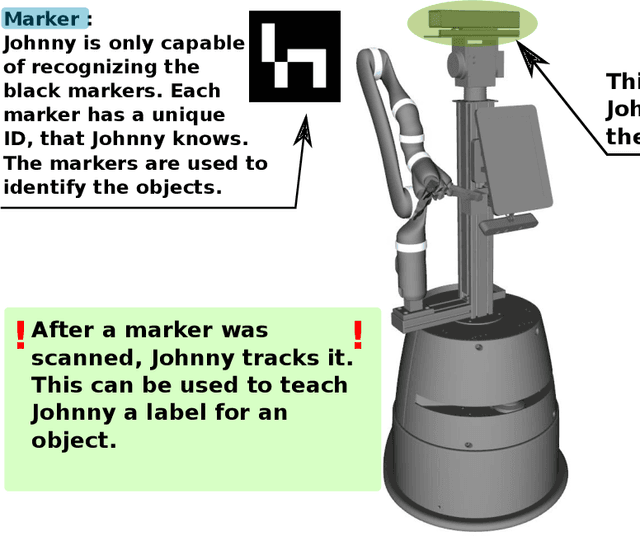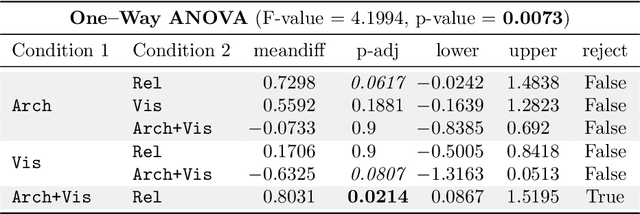Why robots should be technical: Correcting mental models through technical architecture concepts
Paper and Code
Nov 05, 2020



Research in social robotics is commonly focused on designing robots that imitate human behavior. While this might increase a user's satisfaction and acceptance of robots at first glance, it does not automatically aid a non-expert user in naturally interacting with robots, and might actually hurt their ability to correctly anticipate a robot's capabilities. We argue that a faulty mental model, that the user has of the robot, is one of the main sources of confusion. In this work we investigate how communicating technical concepts of robotic systems to users affects their mental models, and how this can increase the quality of human-robot interaction. We conducted an online study and investigated possible ways of improving users' mental models. Our results underline that communicating technical concepts can form an improved mental model. Consequently, we show the importance of consciously designing robots that express their capabilities and limitations.
 Add to Chrome
Add to Chrome Add to Firefox
Add to Firefox Add to Edge
Add to Edge